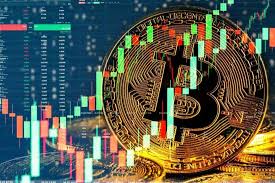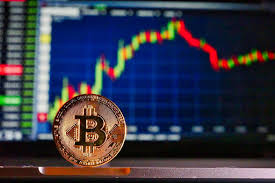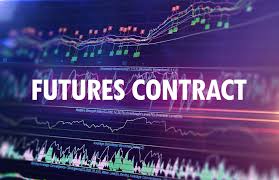
Mastering Your Skills with a Demo Account for Crypto Trading
In the fast-paced world of cryptocurrency trading, having a solid foundation is crucial for success. Many aspiring traders dive headfirst into the market, only to find themselves overwhelmed by its volatility and complexity. This is where a demo account for crypto trading comes into play, offering a risk-free environment to learn and practice. This article explores the importance of demo accounts, their benefits, and how they can significantly enhance your trading journey. For more insights into the evolving landscape, you can also visit demo account for crypto trading https://www.crunchbase.com/funding_round/tempo-automation-post-ipo-equity–b9866f60.
What is a Demo Account?
A demo account is a simulated trading environment offered by most trading platforms. It allows traders to practice buying and selling cryptocurrencies without using real money. Traders can use virtual funds to test strategies, learn the interface, and understand market dynamics. Most demo accounts replicate the actual market conditions, providing a realistic experience that mimics live trading.
Benefits of Using a Demo Account
1. Risk-Free Environment
The most significant advantage of a demo account is the absence of financial risk. Beginners can experiment with various trading strategies and learn from their mistakes without suffering monetary losses. This cushioning is vital for those unfamiliar with market indicators and trading patterns.
2. Familiarization with Trading Platforms
Crypto trading platforms can be complex and often overwhelming for newcomers. A demo account provides the perfect opportunity to familiarize oneself with the platform’s features, tools, and functionalities. Users can learn how to execute trades, set stop-loss orders, and utilize technical analysis without the pressure of real capital on the line.
3. Testing Trading Strategies
A demo account allows traders to develop and iterate their trading strategies. Whether they are day trading, swing trading, or investing for the long term, users can simulate their strategies over an extended period. By analyzing the results, traders can refine their methods and build a robust approach to real trading.

4. Emotional Control Development
Trading can evoke strong emotions such as fear and greed, which can cloud judgment and lead to poor decision-making. A demo account lets traders experience the market’s ups and downs without the emotional strain of actual financial stakes. This experience is invaluable for developing emotional control, which is critical for successful trading.
5. Building Confidence
Confidence plays a critical role in trading success. A demo account helps build that confidence by allowing traders to practice and become proficient in their skills. As they accumulate experience and positive outcomes, they will be better prepared to transition to live trading.
How to Get Started with a Demo Account
Getting started with a demo account is relatively easy and straightforward. Here’s how to do it:
- Choose a Trading Platform: Select a reputable crypto trading platform that offers a demo account feature. Platforms like Binance, Kraken, and eToro are popular choices that provide extensive demo capabilities.
- Create an Account: Sign up for an account. This usually involves providing some basic information and verifying your identity. Most platforms allow users to switch between demo and live accounts seamlessly.
- Start Trading: Once your account is set up, deposit virtual funds into your demo account. Begin by exploring the features and making your first trades. Utilize the learning resources available on the platform to enhance your understanding.
Transitioning to Live Trading
After spending time on a demo account and developing a strategy, many traders may feel ready to transition to live trading. Here are some tips to facilitate that transition:
- Start Small: Begin with a small investment that you can afford to lose. This will help reduce anxiety and allow you to focus on executing your strategy without the fear of significant loss.
- Use the Same Strategy: Initially, stick to the strategy you tested on the demo account. Avoid making drastic changes until you have a firm grasp of live trading conditions.
- Maintain a Trading Journal: Keep track of your trades, decisions, and emotions throughout the process. This journal will help you analyze your trading patterns and identify areas for improvement.
- Be Patient: Understand that losses are part of trading. Stay patient and focus on long-term success rather than short-term profits.
Conclusion
A demo account for crypto trading is an essential tool for beginners and experienced traders alike. It offers a safe and effective means to learn the ins and outs of the cryptocurrency market without the risk of losing real money. By leveraging the experience gained from a demo account, traders can build their confidence, refine their strategies, and develop the emotional control necessary for real success in the crypto arena. Whether you’re interested in day trading, long-term investing, or simply learning the basics, starting with a demo account is a smart move towards achieving your trading goals. So, take the plunge into the world of crypto trading, but do so with the protection and knowledge that a demo account provides.


